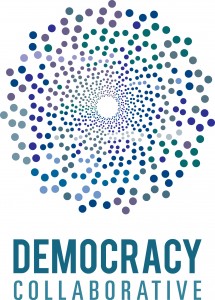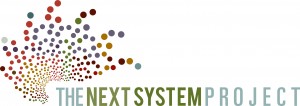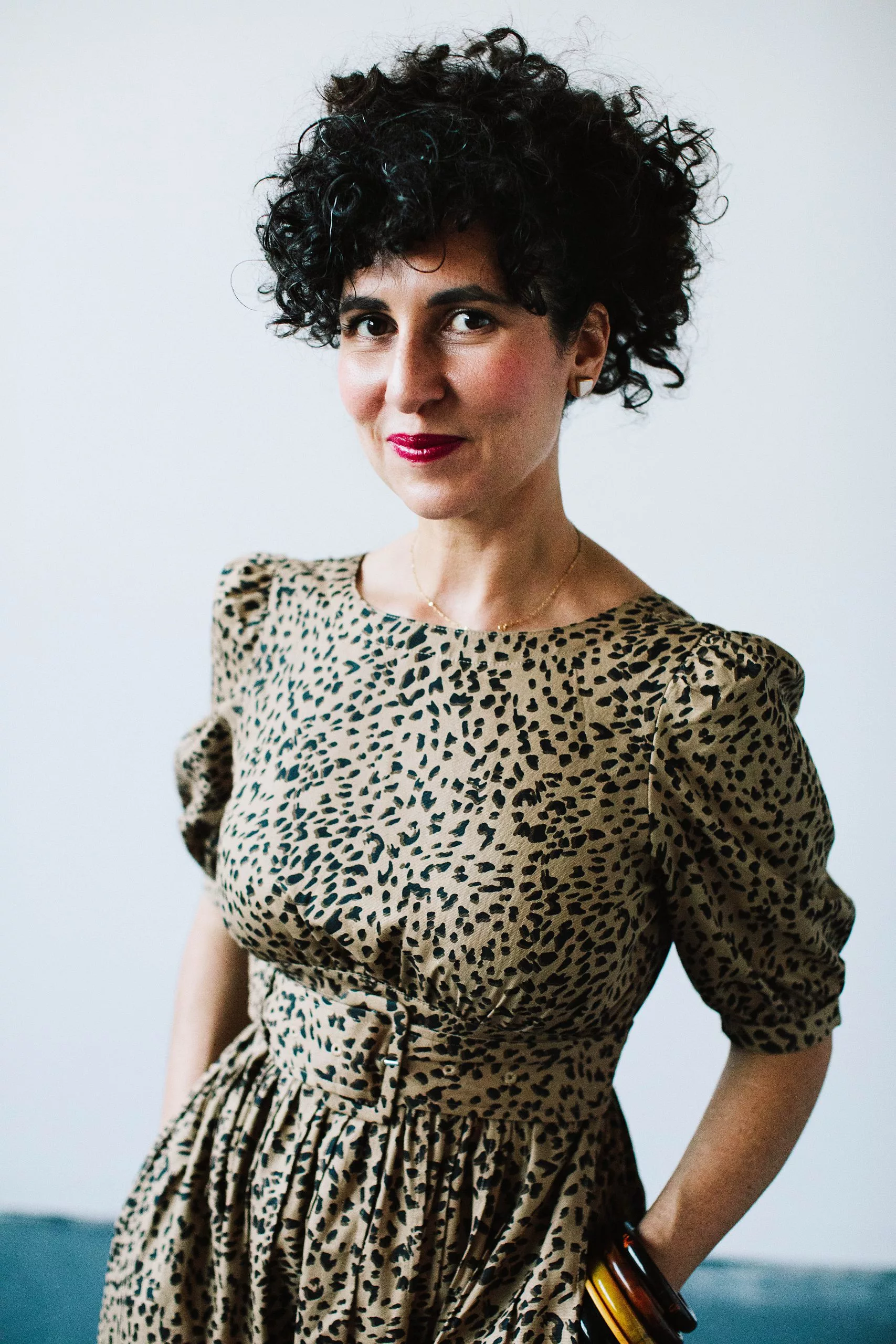“Fellow revolutionaries I am delighted to be with you…”
Gar Alperovitz greeted his audience at SOCAP12 as, “fellow revolutionaries.” His speech focused on co-ops, worker owned companies, and the New Economy Movement, but he also spoke of the necessity of a broader movement. In 2015 that broader movement is coming together. Gar now serves as Co-Chair of The Next System Project, an initiative designed to stir productive conversations and debates that will ultimately lead to sustainable, lasting, and more democratic social, economic, and ecological outcomes for all.
https://www.youtube.com/embed/lqjbvvAetT8,560,315,0,auto,
The SOCAP community cares deeply about, and is already working to solve, many of the systemic problems identified by The Next System Project: economic inequality, generational poverty, climate change, racial injustice, and others. Watch Gar’s 2012 speech to see the groundwork and then visit TheNextSystem.org to sign on or learn more about how you can participate in the process of creating systemic solutions.
How Do We Build the New Democratic Economy We Need?
As I was listening to the last two speakers, it occurred to me, looking around the room as well, that the way to begin this talk is to say, fellow revolutionaries I am delighted to be with you. And I mean that in a very fundamental way. I think we are talking about transforming the largest economy in the history of the world and a world economy that is in great difficulty; there are great economic difficulties, ecological problems, we all know that. I don’t know that we all get how deep it is. So I want to talk to you just a bit about something called the New Economy Movement and then give you some ideas about going to scale that are beginning to dawn on people when they face the depth of the problem we all face. Just to begin, I’ve been traveling around the country lately and the so-called New Economy Movement includes: you all, it includes co-ops, worker-owned companies, land trusts.
There are 130 million Americans who are members of co-ops. Most people don’t know that. There are 10 million Americans who are members of worker owned companies: some 11,000 of them. There are more people involved in worker owned companies than there are members of unions in the private sector—very strange things going on. There are neighborhood corporations, four or five thousand of them. Several thousand social enterprises of various kinds—you folks are more familiar I am sure with the social enterprise movement. But there is a movement building that cuts across many, many parts of the spectrum and indeed it is calling itself the new economy movement for lack of better terms. The thing I think is important about it, and why it could be transformative including the direction that is represented by this cutting edge part of the movement is it in fact is asking itself, “are we up to, really, what it would take to transform an economic system—not just doing isolated projects, but projects that build up and begin to ask that big, big question together in a strategic way, not simply a tactical way.
 So I’m going come back at the end of this brief talk to talk about a few cities, so let me give you just a hint of what I mean. We’ve been working, our group the Democracy Collaborative, Ted Howard is the executive director, in the city of Cleveland. (Cleveland) has gone from 900,000 people to 400,000 people over the last 30 years. Where did all the people go? They disappeared. They were scattered. Something strange is happening when a whole city …we are throwing away cities. Think of not only the human cost but the capital cost of schools, houses, roads, hospitals: everything in place for that population had to be rebuilt someplace else again at same huge capital cost and also huge carbon cost.
So I’m going come back at the end of this brief talk to talk about a few cities, so let me give you just a hint of what I mean. We’ve been working, our group the Democracy Collaborative, Ted Howard is the executive director, in the city of Cleveland. (Cleveland) has gone from 900,000 people to 400,000 people over the last 30 years. Where did all the people go? They disappeared. They were scattered. Something strange is happening when a whole city …we are throwing away cities. Think of not only the human cost but the capital cost of schools, houses, roads, hospitals: everything in place for that population had to be rebuilt someplace else again at same huge capital cost and also huge carbon cost.
Secondly, when you destabilize whole cities and throw them away—and this is part of what’s being addressed at this other level—you cannot do serious sustainability planning. You can’t do mass transit planning and you can’t do high density housing planning and it’s hard even to keep the economic base available for smaller projects of various kinds when you undermine whole cities.
If you’ve been to Detroit recently, they lost a million people. They went someplace else. Nobody pays attention to the human costs, and the capital costs, and the carbon costs, and what happens in terms of climate change if you can’t do the kinds of things we are talking about. So I want to open up that level of scale as well in our conversation. So I don’t think we here are talking about projects alone. I don’t think we are talking only about entrepreneurship, I don’t think we are talking only about impact investing. I think we are talking, and I sometimes wear a historian’s hat, I think we are talking about laying down the foundations and ideas, people, projects, experiments, for something new and difficult. We are establishing the prehistory in this work, step-by-step, of the possible great transformation.
So I am talking to you about identity: who we are in the matter. Are we doing projects? Are we doing investing? Are we doing great programs? I’m talking to the person in your chair. Or are we seeing ourselves as part of this larger historic process of transforming an entire economy and indeed the world economy by implication. Our project is there. But if we can do it here we will offer leadership I think in a time of great, great crisis.
So that’s what (I’m older than some of the folks here) that used to be called a heavy rap. That is something that, if we take ourselves deeply seriously, we might get to. So, to use the term that’s popular here, that’s the lens that I’d like you to think about as we go into some of this.
The second way to think about it is this: can we begin to think of scale and ownership in a different way. Ownership. I mentioned those 10,000 companies that are worker owned. Most people don’t know about it because the press doesn’t cover it. 10 million people. I mentioned 130 million people in co-ops. Most people don’t know about that. But how do we take that idea to scale and how do we talk about ownership in a different way.
The number that keeps ringing in my ears when I think about this is a very strange number. I didn’t believe this number. This number has to do with democracy. Four hundred people, people not percentage, 400 individual people now in the United States have more wealth than the bottom 180 million people taken together. That is literally a medieval number. I don’t mean that rhetorically. That is how medieval society was organized. And if you want to step up to our revolutionary problem: can we have a democratic society if we don’t democratize ownership in a different way so that people have a very different stake in what they are doing and have ownership in a meaningful way that takes it all across the society? So what does that mean? That’s what those co-ops and these worker owned companies are about— trying to actually get a practical idea … entrepreneurs individually are part of this. Building up a different way and a different sense of ownership as well as an experience of ownership. Most of what we are talking about so far is at a scale that doesn’t yet get us to where we want to go. That’s what I mean about pre-history that developmental period.
Most of the programs that became The New Deal in the 1930s came from people like the people here in this room, in the laboratories of democracy who then moved things to scale when the time was right. And I think that’s also what you’re beginning to see. But there are also some really interesting examples building up that begin to ask: how do we address Cleveland, Detroit, Baltimore, St. Louis, those bigger problems in many cities throughout the country and also the distribution of income and wealth in a different way. We’re not getting there on the tax front, changing ownership is part of the answer, most people think. And were almost certain to see a lot more of it.
So I wanted to give you just a feel, the beginning feel, of some of the other possibilities that push us to that revolutionary scale, just a little bit. Some of you may know about the Mondragon Corporation out in the Basque country of Spain. It is a cooperative, worker owned cooperative, (shows picture of inside Mondragon). This is going to scale: 85 thousand people, a huge operation. Does everything from sales, to high-tech, sales, to construction, to medical instruments to aerospace. And it is in entirely worker owned as a cooperative. Strange, not your little garden variety cooperative. A way to think about the future. Not only, but the ratio internally of top to bottom , if we want to think about the equity lens, 6 to 1. Think about that. Worker owned, high tech, 85 thousand people. Top to bottom ratio of 6 to 1. And it is penetrating markets all over the world and it is thriving in, not only Spain. In a few of the larger sector coops they realized they had to change the pay ratio slightly because they were much bigger, so 8 to 1 is the max. Here, top paid to bottom paid big corporations are commonly 250 to 1. 300 to 1. They are demonstrating there that you can do things you didn’t think you could do through democratic ownership. That is just one example. Just a flavor.
Its happening around the world and the light bulb is how we are beginning to ask the same question in the New Economy Movement. There’s another place in the Emilia Romagna area of Spain. 15,000 linked worker owned cooperatives, and again it’s high tech. It’s taken the poorest region of Italy to the one of the richest regions over 30 years in all of Europe in a very very carefully interlinked and well-managed structure of worker owned coops that are high tech and working. In fact it is the subject of new studies by MIT’s political scientists as a way to move to the future. You get both decentralization, change of ownership, you get high tech and you get real impact at large scale in whole regions. Think of Cleveland, think of St. Louis, think of Detroit and think of what we are not addressing. And think of us us moving over time to different scale. There’s another one in Japan, , same thing happening at a large scale that I don’t have time to go into given the time available.
I do want to tell you about one of the most fascinating and powerful experiments going on in the United States. It’s in Cleveland, where there are a series of worker owned cooperatives, linked together by a revolving fund and a nonprofit corporation. Odd structure. It is a community building structure that has worker ownership in it, but the revolving fund supports expansion over time of this structure, and allows you to build community as well. This is one of them (shows photograph). These are the Evergreen Cooperatives. One is the largest, in the United States, greenhouse, in an urban area—a co-op capable of producing 3 million heads of lettuce a year. That’s one of the linked cooperatives in this area, and it’s an area of 40 thousand people whose average income is 18 thousand. Here’s another one. That’s the Evergreen Energy Solutions, another solar co-op, one of the linked ones putting in more installation than exists in all the state of Ohio over the next three years. Twice as much. Here’s a third: the most advanced industrial scale laundry in the Midwest and the greenest as well. Very high-tech. And that’s the scale of what is beginning to be possible.
Atlanta is now moving in the same direction and trying to apply this worker owned cooperative model and its impact, linked together, to build out from there. They’re also using the purchasing power of large-scale anchor institutions—hospitals, universities, 3 billion dollars of purchases in that area of Cleveland, none of which went to that area. So they’re beginning to leverage that.
Pittsburgh, Washington DC and several other cities—Milwaukee, Chicago—are now considering it. Amarillo, Texas is doing it. There is something happening that is beginning to take transforming ownership, building community, and this direction forward as part of the larger New Economy Movement we all share together. It is a very interesting moment in history. We are not simply doing projects. We’re not simply doing great things. We are, I think maybe, laying down this groundwork. And I suspect there are people in this room, possibly the person sitting in your chair, who will take this larger direction, this larger movement we all share, and make it the next great American revolution, together. Thank you very much.

Some exciting Next System Project programming will be featured at SOCAP15. To participate in the conversation about what should come next, join the SOCAP Community in San Francisco, October 6-9 at the Fort Mason Center.



